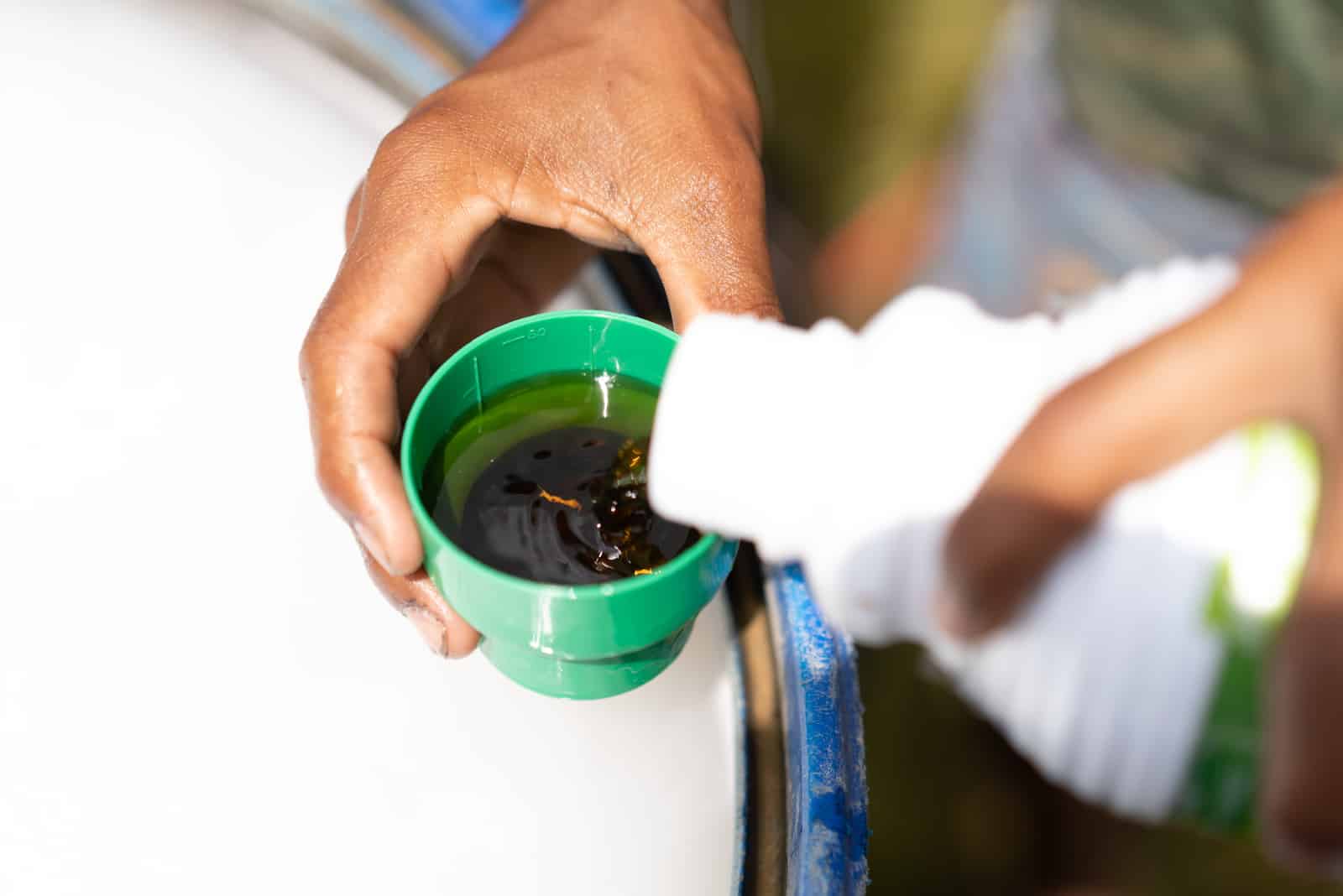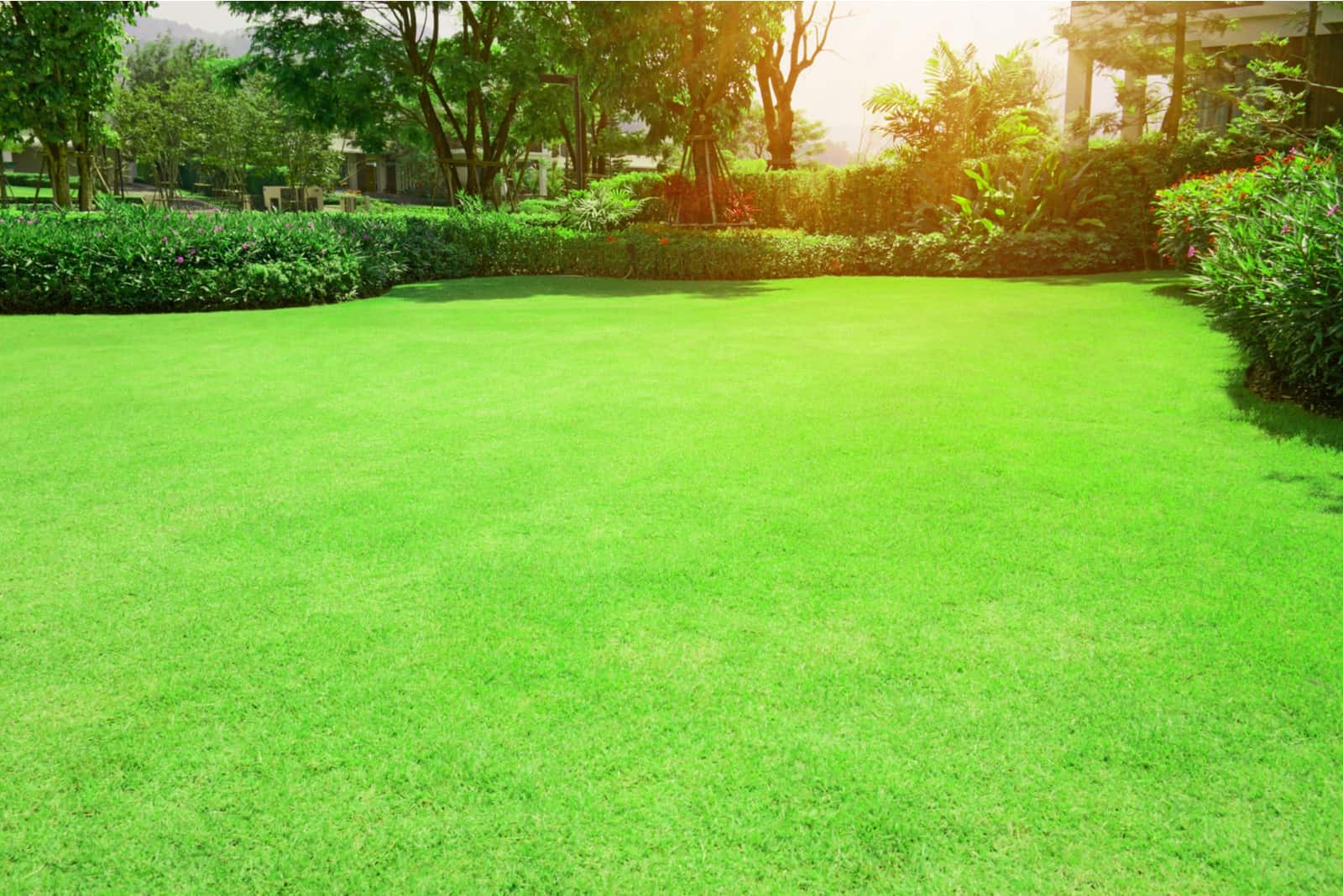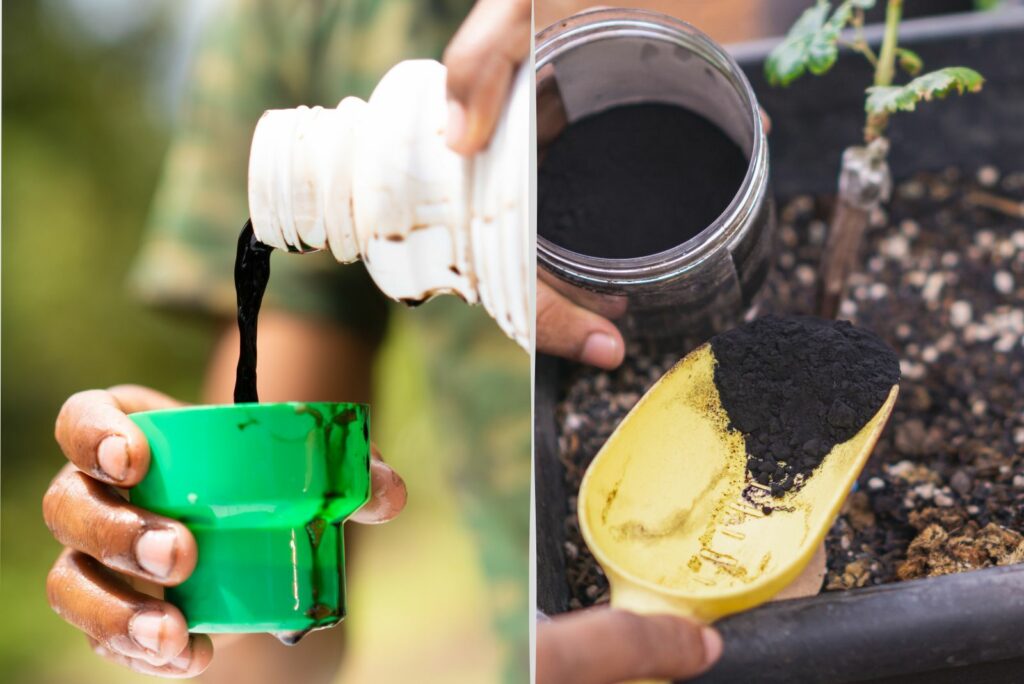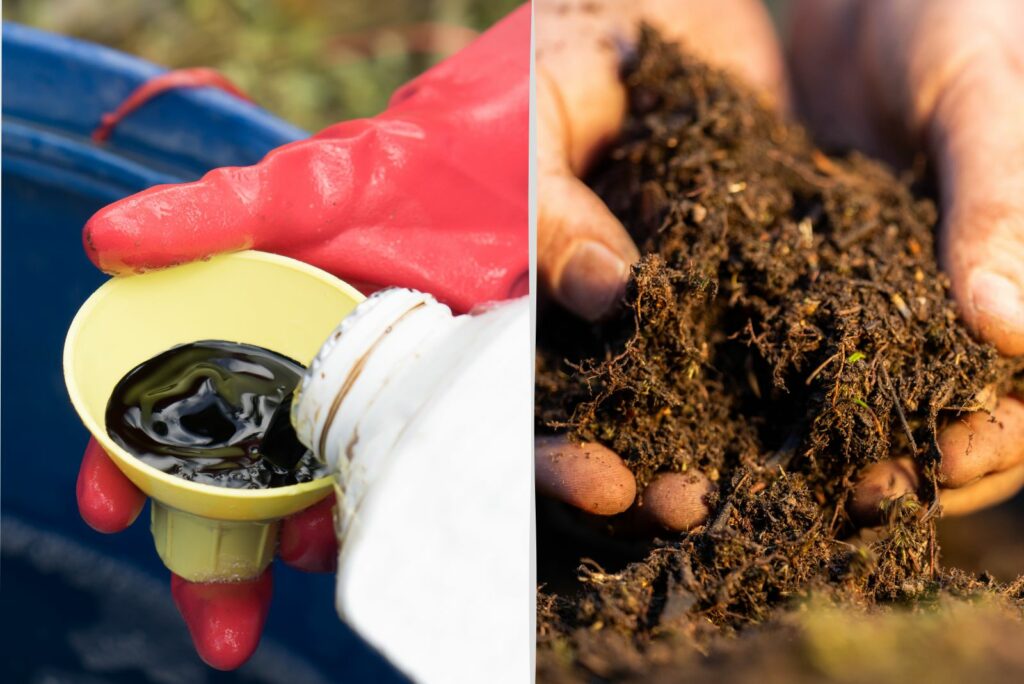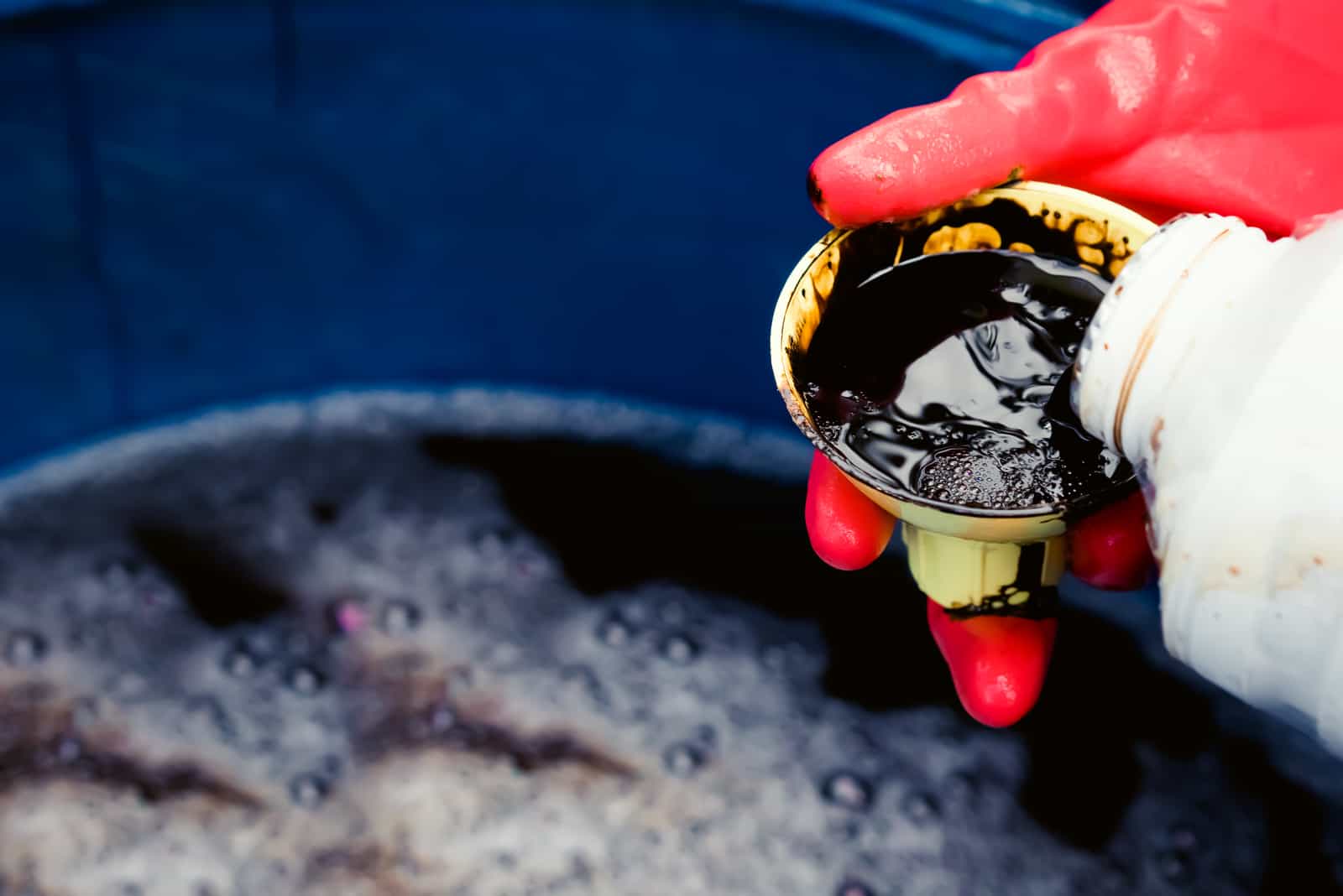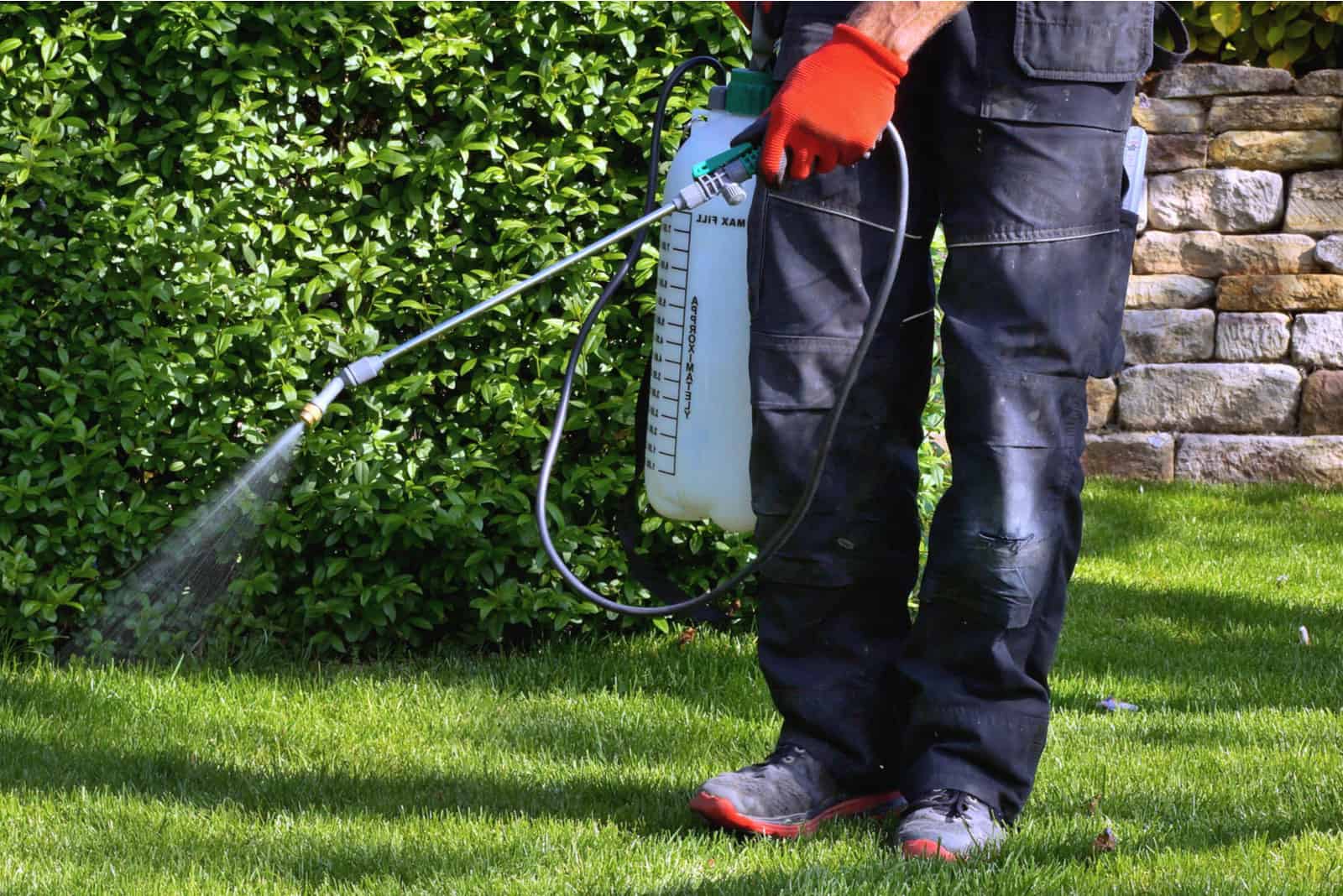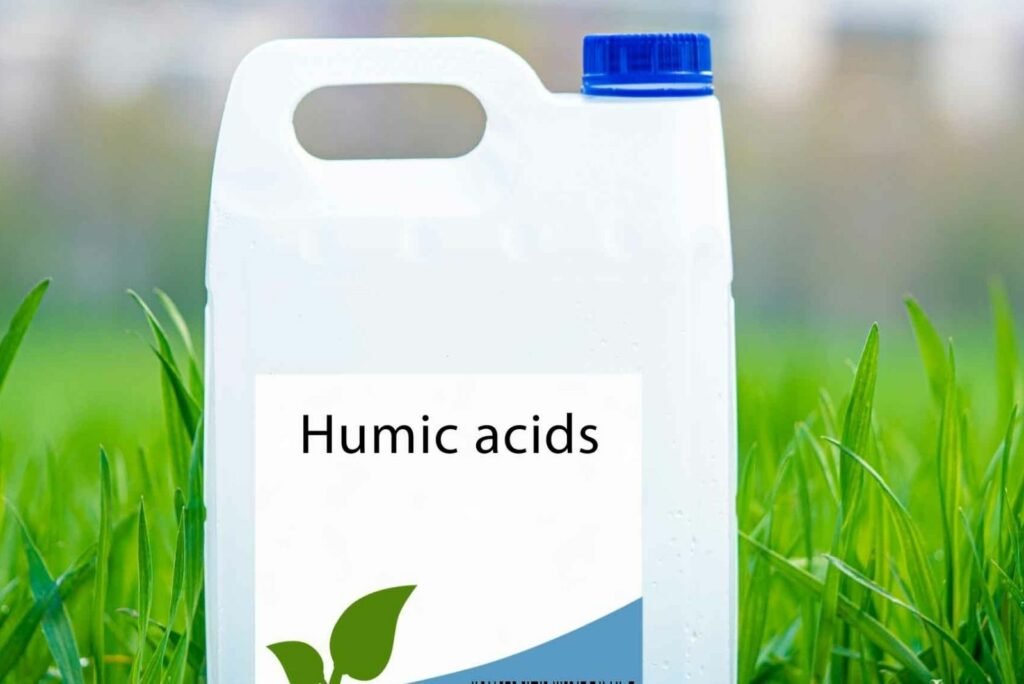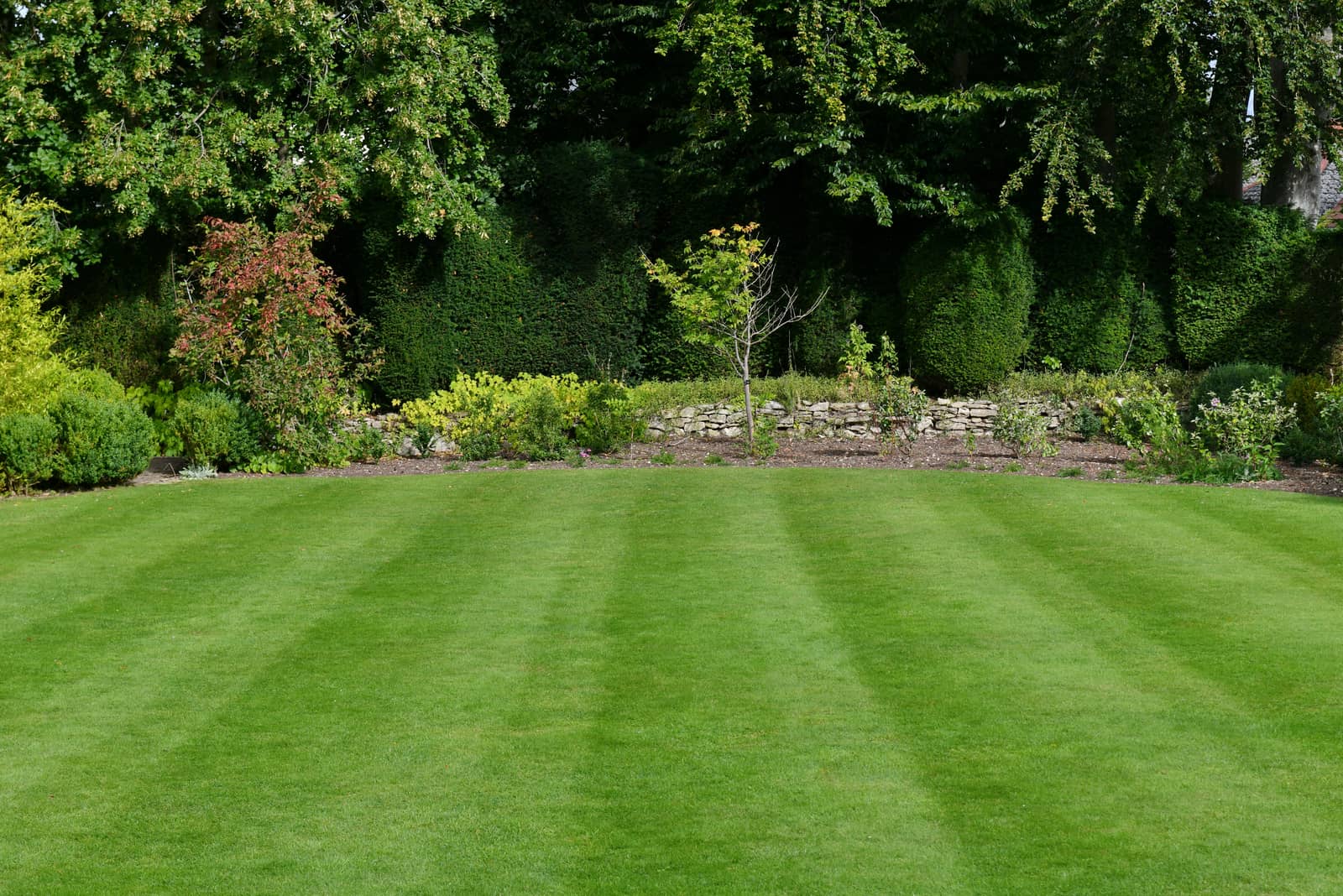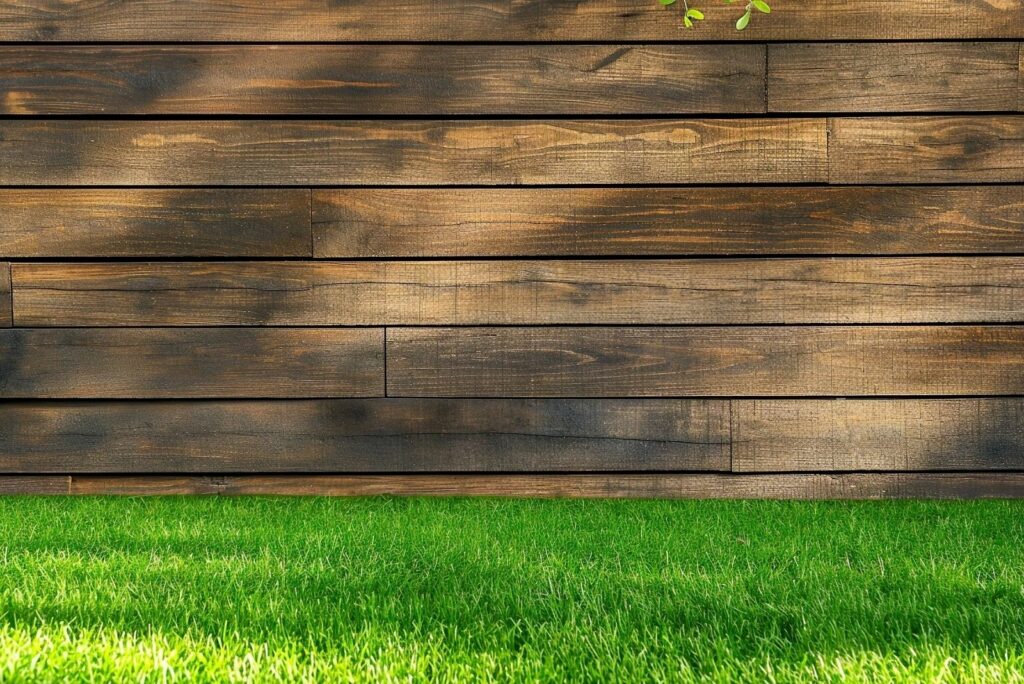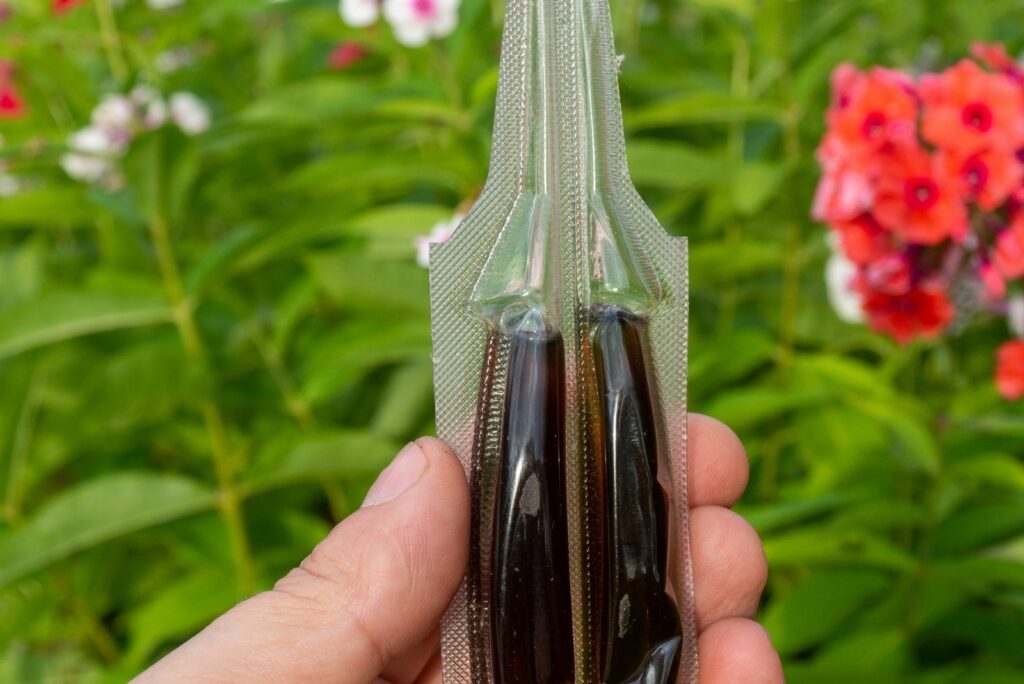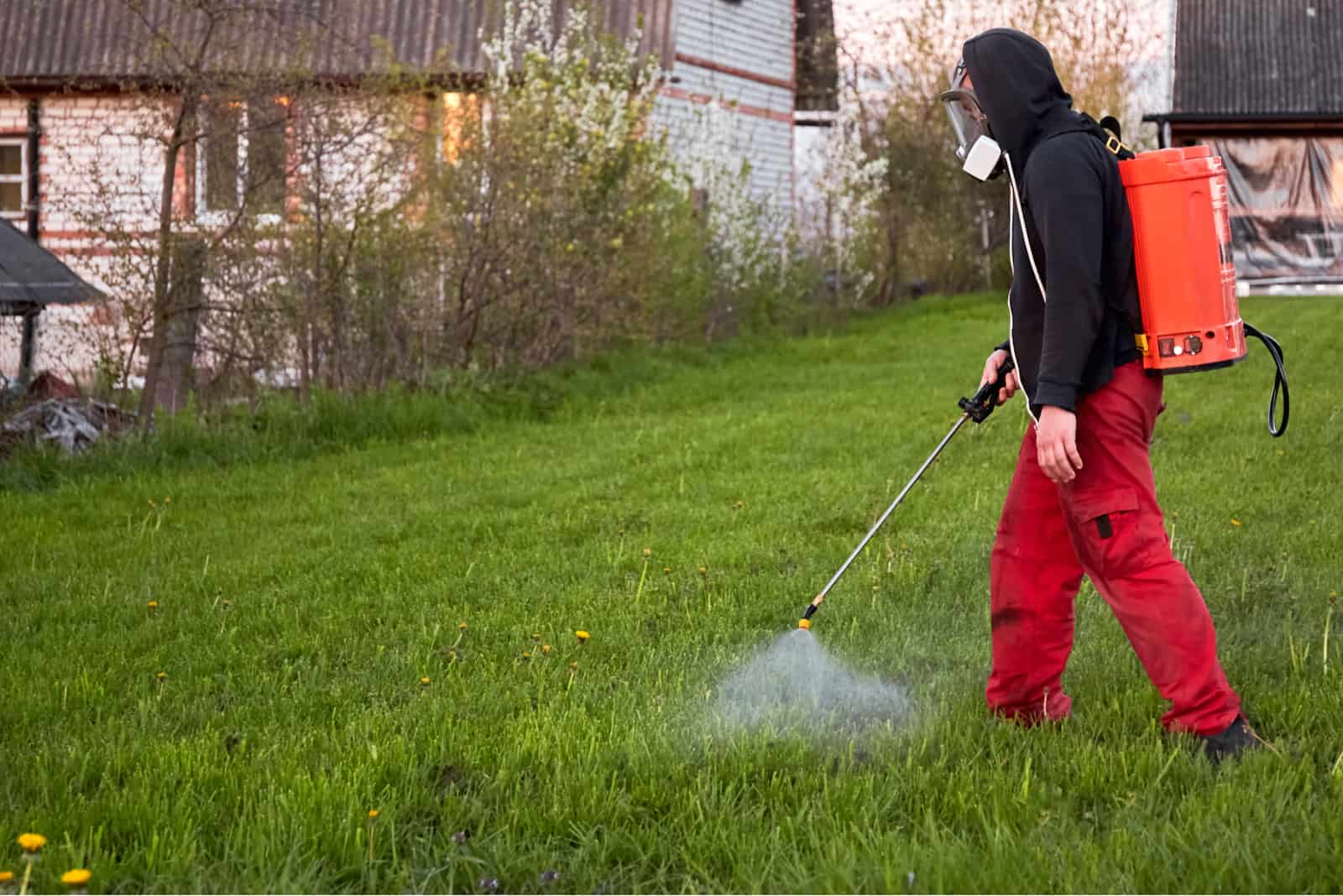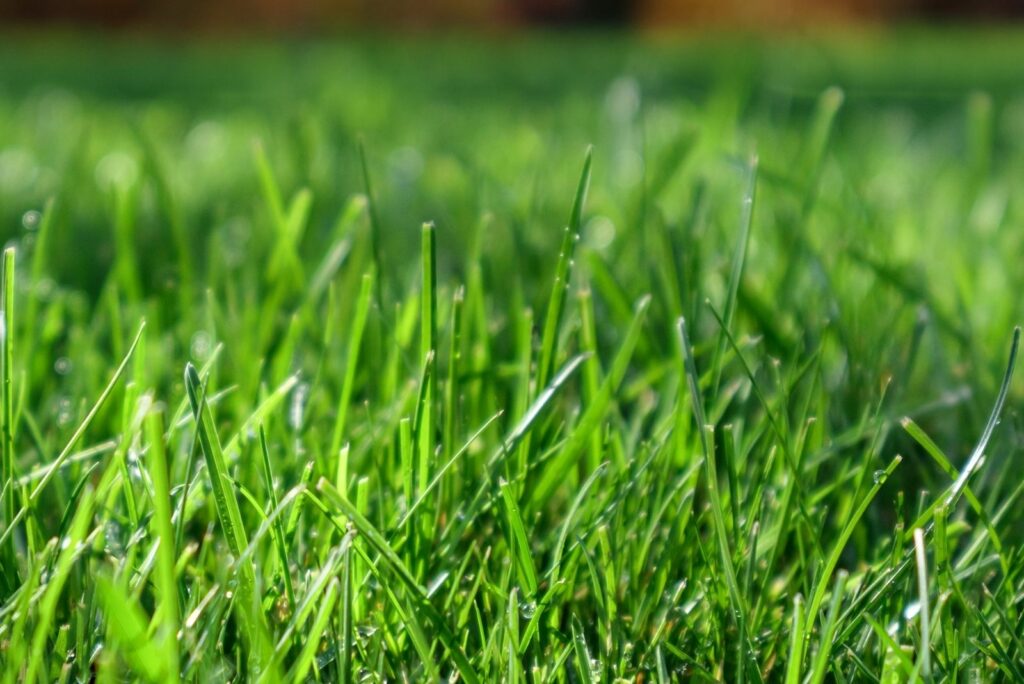Now that you have a lawn of your own, I am sure that you want to learn more about lawn care and all the things that could be helpful for this process.
As an experienced lawn owner, I would like to share some of the most essential facts about humic acid with you here.
When I first heard about humic acid for lawns, I thought it was strange that anyone would put acid on their lawns. It actually turned out to be one of the best things that ever happened to my lawn! Here’s why:
This kind of acid for lawns is used to improve the soil structure. It is a so-called soil conditioner.
Before we move on, let’s define a couple of terms that will help us understand the meaning of humic acid.
Compost – soil component which is a result of aerobic decomposition
Humus – soil component which is a result of anaerobic fermentation
Humic substances (humates) – consists of humic and fulvic acid
Humic DG – humin + fulvic acid + humic acid + precursor
I’m sure that was all very confusing, so let’s take a closer look at what it all means.
What is Humic Acid For Lawns?
Humic Acid is one of the most important parts of organic matter. It’s also known as humus or humic substances.
Microbes are formed after the decay of plants (humus), and the leftovers are called humic acid.
Humus stores micronutrients. As humus, humic acid inherits these beneficial nutrients, such as hydrogen (which is what makes it an acid), nitrogen, phosphorus, and potassium (npk).
Humic Acid accelerates the uptake of many other beneficial nutrients that plants will use later. Think of it as a connection between soil nutrients and turf grassroots.
The nutrients from this type of acid won’t be added to the soil directly, but they will promote the general nutrient uptake of the soil.
Humic acid is most frequently derived from leonardite, which is organic matter that hasn’t turned to coal yet. It is undoubtedly one of the best soil amendments.
Humic Acid vs Fulvic Acid
Fulvic acid shouldn’t be mistaken for humic acid. Fulvic acid is a part of humic substances (humates) soluble at every pH level, while humic acid is soluble in water at higher pH levels.
The treatments used for lawn care mostly consist of both humic and fulvic acid.
The molecules of humic acid are larger and improve the health of the soil in biological terms.
Fulvic acid molecules are smaller and help the nutrient uptake of the root system once they enter.
This is why humic acid is used with fulvic acid: because they are both chelators and bio-stimulants.
Humic Acid vs Compost
Compost contains several humic substances like humic acid, fulvic acid, and humin.
This is why it’s important to never forget that humic acid is a part of compost.
I think that’s enough science for one day, so let’s move on to the benefits of this wonderful stuff.
What Are The Benefits Of Humic Acid?
So, why should you use humic acid for lawns? There are actually many reasons. Let’s find out.
• It improves bio-activity and contributes to the aeration of the soil.
• Water retention – it retains water and nutrients and meets all the soil requirements.
• It improves soil structure and adds color and consistency.
• It Increases the amount of carbon, which promotes plant growth.
• It serves as a detox for your lawn (helps to remove toxic pollutants).
• It promotes the growth of microorganisms.
• When used with fulvic acid, it helps nutrient uptake from the root system.
• It is a stimulant for root growth (cation).
• It promotes germination rates.
This type of acid is one of the best active ingredients in biostimulants.
If you add any fertilizer like 17 17 17 fertilizer or triple 19 fertilizer to the soil, it will improve its absorption.
It can be added to sandy soil or clay soil, and will improve their condition.
Types Of Humic Acid
There are two types of humic acid for lawns: granular and liquid humic acid. If we compare them, we see that they are both equally effective, but there are some differences.
The main difference between granular humic Acid and liquid humic acid is watering. Granules of this type of acid for lawns should be watered after you apply them. After you water the granules, they will dissolve and release the nutrients.
On the other hand, if you use a sprayer with liquid humic acid, you shouldn’t water it afterward as it will release the nutrients immediately. It is faster to add this acid, but the results are the same.
Powdered liquid humic acid products are the cheapest, so if you decide on that option you won’t have to spend too much, which is a good reason to use it.
How To Use Humic Acid
So, we’ve concluded that humic acid is beneficial for lawns. Now let’s look at how to apply it.
You will need:
• Natural fertilizer
• Liquid or granular humic acid
• A pump sprayer
To get better results with this acid, you should first apply a natural fertilizer. This will give microorganisms to the soil.
Take 2 ounces of liquid humic acid and mix it with a gallon of water.
Take a bottle with a pump sprayer and fill it with this mixture.
Spray it over the grass (approximately 6 inches above). Spray it evenly to get better results.
As far as granular humic acid is concerned, it can also be mixed with water. Put it in a pump sprayer and spray it over the grass. That amount will be enough to cover 100 square feet.
If you don’t want to mix the granular humic acid with water (I use this method), just spread granules over the grass and water the grass afterward.
You should apply humic acid in the growing season (fall and spring) to get the best results.
Applying this type of acid to lawns during other seasons isn’t necessarily wrong, you just won’t get the results as quickly as when using it during the growing season.
The best time to apply humic acid is early in the morning or after the sunset to avoid grass blades. If you’re using dry granules, you can apply it any time of the day.
Here’s a video: https://www.youtube.com/watch?v=tEsJI6MsJaY
How Often Should It Be Used?
Humic acid for lawns can be applied throughout the entire season (fall and spring).
It is a natural soil, and it helps regulate soil pH. The soil microbes are generated throughout the entire process.
Can You Apply Too Much?
There is no strict rule when it comes to using this type of acid for lawns. You can’t technically apply too much humic acid.
This doesn’t mean that you should apply it all the time, or that you can use huge amounts of it. It’s not only unnecessary, but also a waste of your money.
Spray or cover the grass with humic acid evenly to achieve better results. Water the lawn if you have previously applied granular humic acid, and that’s pretty much it.
When To Use Humic Acid
Whenever you like. This is a high-quality soil conditioner and, as such, fulfills all your lawn needs. There’s no reason not to use this excellent lawn additive, and this article has taught you everything you need to know about how and why to do so.
If you have sandy or clay soil, it can only improve their general condition. If you already have a healthy lawn, you can use this kind of acid to prevent any complications and preserve high quality.
This acid is perfect plant food for the plant roots.
You can even add potassium hydroxide or sea kelp along with humic acid to get even better results.
When To Expect Results
It depends on whether you chose liquid humic acid or granular humic acid. Liquid humic acid will act immediately, and if you use granular, you will have to wait for a couple of days.
How Long Does Humic Acid Last?
Great news! It is a long-lasting soil conditioner that can’t harm your lawn. Follow the instructions provided and you will undoubtedly have high-quality soil.
What are the side effects of using humic acid?
There are no side effects when using this soil conditioner for lawns. Bear in mind that plants on the grass can only actually use a limited number of nutrients, and adding too much humic acid can’t increase the uptake.
Wrapping Up
Now that you’ve reached the end, I’m sure that you won’t hesitate to purchase some humic acid for lawns!
It’s beneficial, cheap, and a simple way to keep your lawn healthy and well-maintained.
Until next time!
Like this post? Share or pin it for later!

